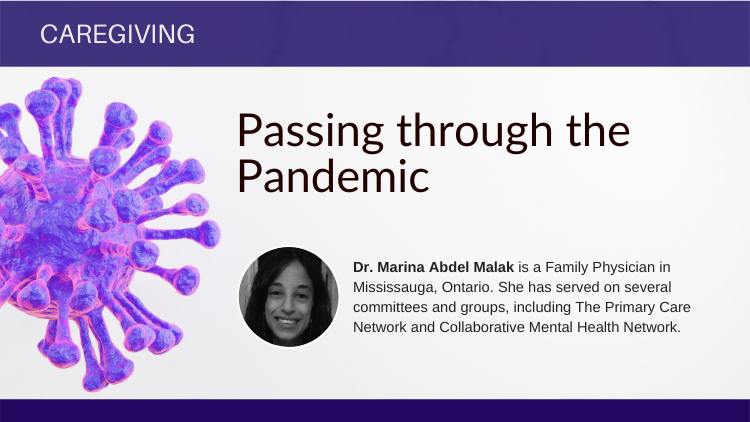Prognosis for Elderly Patients is as Favourable as for Younger Ones
Barry Goldlist, MD, FRCPC, FACP
Mental health issues in the elderly have long been rendered more confounding by the high prevalence of dementia. In the past, health care practitioners have tended to ascribe all mental health problems to 'senility'. Since it was felt that nothing could be done for these patients, little diagnostic acumen was 'wasted on these hopeless patients'. As we can see from this issue of Geriatrics and Aging, mental health problems in the elderly are both numerous and varied. Caring for these patients is not a hopeless waste of energy; it does, however, require considerable knowledge and skill. In many cases the prognosis for elderly patients is as favourable as for younger patients. Again, extensive knowledge of age-related pharmacokinetics is often required.
Even the management of dementia is no longer considered hopeless. Previous issues of Geriatrics & Aging have highlighted some of the advances in the diagnosis and management of dementia, particularly in Alzheimer's disease. Measures to prevent stroke in elderly patients, such as the wider use of antihypertensives, the use of anticoagulants in atrial fibrillation, and aspirin use for transient ischemic attacks, will also decrease the prevalence of dementia. However, there is currently a huge problem, one that will only become worse over the next few years. I am referring to the mental health problems that are so prevalent among nursing home patients.
Mental health problems in nursing homes often present as unacceptable behaviours. These span the gamut from verbal aggression, to sexual assault and physical abuse. Wandering, pacing, and repetitive vocalizations are also difficult for the staff in nursing homes (or anywhere else!) to cope with. Withdrawal from activities and 'failure to thrive' can often represent a treatable depression, as well as dementia. Nursing home patients often have multiple medical problems and even obtaining a history can be quite challenging. Because of these factors, the psychiatric diagnosis and subsequent management of nursing home patients often requires a very high degree of clinical expertise, and yet it is precisely this group of patients that is tremendously disadvantaged in terms of having access to expert psychiatric care. Previous attempts to upgrade nursing homes' capabilities to manage these patients have only been partially successful. These efforts have ignored the requirements for upgrading the skills (and perhaps the salaries) of the primary care givers, and have not constructed patterns of care that will allow easy access to specialist help. In many areas of the country, specialized psychiatric services of any type are non-existent, let alone available to the frail elderly.
If we assume that the manpower issues are not going to be solved soon (or never if no initiatives are taken), what else can be done? Perhaps sessional fees for psychiatrists could be awarded to nursing homes. A great deal of psychiatric intervention in these settings involves education and support for staff, and multidisciplinary team meetings to plan comprehensive strategies for individual patients. These services are currently poorly funded, if at all. Similarly, specialist nurses and occupational therapists could be tremendously helpful, but are not currently financially feasible for nursing homes.
As well as type and expertise, the number of staff required is a problem. Family members always complain about the extent to which the staff in nursing homes are stretched. The same is true in acute hospitals, but they are not functioning as 'homes'. It would certainly be a grim existence, if in your last residence, nobody had the time to sit and talk to you for a few moments.
Many of these concerns could be tested in clinical trials, but they are difficult studies to perform and there is no great interest. Studies are available for specific medical conditions such as depression, but these trials are relatively scarce in nursing homes, and often do not address the multiplicity of issues that exist.
One of the key issues that has only recently been looked at closely, is the nature of nursing home design. No large institution can ever be truly 'home-like', but current design stresses that breaking a large institution into smaller home-like modules can be useful. For patients who wander or pace, a secure environment with ample space for physical activity can result in a dramatic decline in psychoactive drug use.
My personal activity as a member of the Chief Coroner of Ontario's Long Term Care and Review Committee has emphasized to me the difficulties that health care providers face in nursing homes. Over the past few years, the committee has reviewed cases in which an aggressive act by a resident has resulted in the death of another resident. These tragedies are becoming more frequent as nursing homes accept more and more patients with dementia and behavioural problems. Although there is no easy solution to this problem, I am not convinced that we, as a society, are even seriously trying to address this problem. Incredibly, even as the difficulty of caring for nursing home residents increases, some jurisdictions are decreasing the payments to the physicians who provide primary care for these patients. The inordinate amounts of time that conscientious physicians spend with staff in planning care for these patients are often not remunerated at all, but this topic probably warrants an editorial of it own! The recent settlement for physicians in Ontario might address some of these issues in that province which is discussed in another article in this issue.

